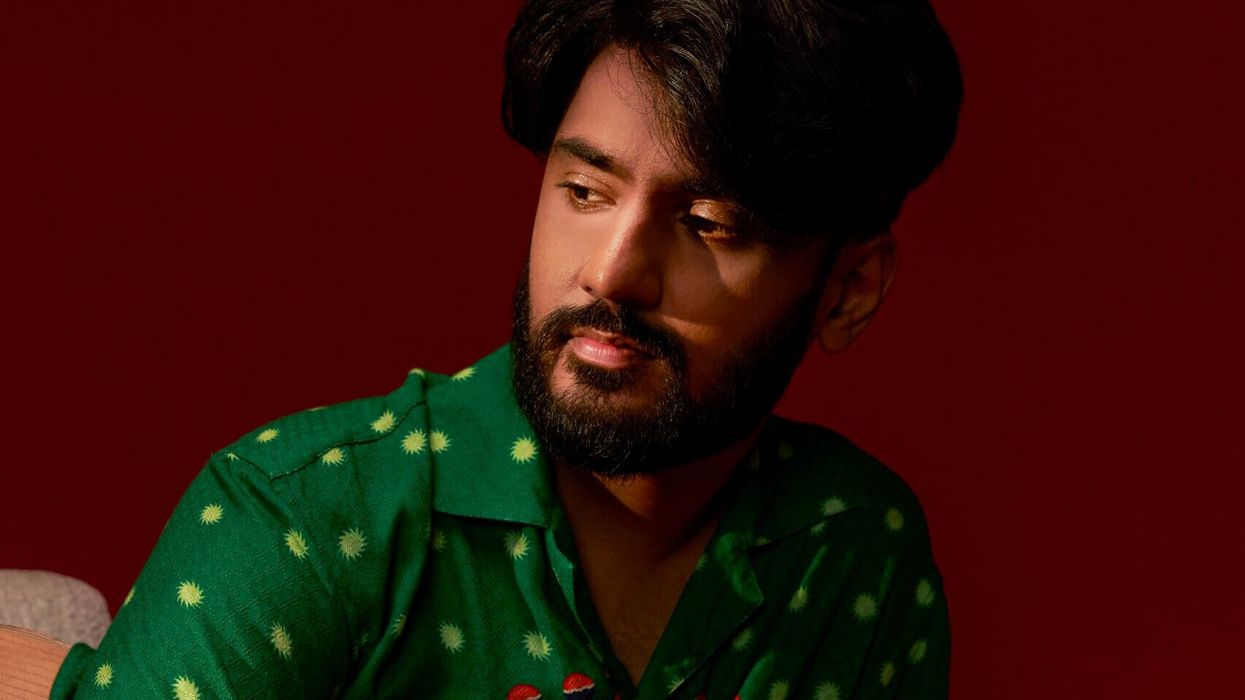MUMBAI-BASED artist Ramil Ganjoo has made a name for himself with melodious music releases that include his EPs Phir Kabhi and Gulmohar, along with acclaimed album Khaak.
The singer/songwriter has been attracting a growing fanbase with top tracks such as his recent single Fursat, which has been described as an intimate journey of the search for a place to call home. The reflective track aims to offer moments of stillness amid the chaos of city life. This week, he releases the song Sandook, a heartfelt ode to his childhood home and the memories it holds.
Eastern Eye caught up with an artist who listeners will be hearing a lot more about, to reflect on his music journey so far, recent song releases and future hopes.
What first connected you to music?
I used to consume a lot of music in my early days, and as I grew up, I took a few guitar lessons. I used to play for hours and became inseparable from the instrument. I think that was the point where I felt connected to music.
Which of your songs has been closest to your heart?
It’s always the song that is being released. Once it is out, I tend to move on to the next one and feel that this has to be my best work. But for now, it’s Fursat.
His new single FursatWhat inspired Fursat?
The struggles and perks of living in a densely populated city is what inspired me to write Fursat.
Who are you hoping connects with this track?
I guess, the best part about making music is that you can’t really tell who will connect to your music until it is released. There can be a lot of different interpretations of the same song. And anyone and everyone can connect to a different meaning that the song generates.
What has the response to Fursat been like?
It’s been really good. I wasn’t expecting it, to be honest, because I’ve experimented a lot with the production this time. It feels really good that people relate to your music.
How many of your songs are based on personal experiences?
Most of them, actually. I feel a song should be personal. That’s how people will relate to it and preserve the song as something special.
How do you feel when one of your songs is released?
I’m always really anxious around releases. It’s like putting a part of your soul out there in the world for everyone to see.
What inspired your song Sandook?
They say home is made of people, not walls. Maybe that’s true, but when I think back, I feel like a part of me stayed in that house.
This song is my way of making those walls proud.
Ganjoo performing on stageHow would you describe your music?
It’s fairly minimal, in my opinion. I believe the main essence of making something which resonates with people involves a lot of deep diving into your own experiences. I feel if the art you create isn’t personal then it might not have the capability to move people in general. So, I guess the music I make is very personal to me.
Who have been your greatest influences?
I’ve been a literature student, and writers in general have shaped a lot of the music that I write today. I’m a huge [Charles] Dickens fan. Apart from him, a lot of existential writers as well as filmmakers have shaped my style of making music.
How much does performing your music live mean to you?
Live performances do mean a lot to me. Lately I’ve started enjoying them as well because I get to connect with my audience in a better way.
What would you say is the music master plan going forward?
It’s fairly simple – to write more and more music. But for that to happen, I’ll have to experience a lot more things. So that’s the master plan for now.
Who would you love to collaborate with?
I’m doing a few collaborations with the artists that I like. But apart from them, I would really love to collaborate with this artist called Bharg. I absolutely love his style.
If you could master something new in music, what would it be?
Well, I’m a very greedy musician in general. I’d want to learn everything there is to learn about this form of art.
What kind of music dominates your own personal playlist?
There’s a lot of acoustic/folk music which you will find there.
Apart from that, you will find jazz, ambient electronic music, a lot of classical music and background scores.
What inspires you as an artist?
The fact that I can make someone feel belonged in this world by rhyming a few lines and then singing them.
Finally, why do you love music?
It’s simple. A person from any age, sect, class, or sex can enjoy it. It is a universal language, and it does help people bond. What more can you ask for?






 Cast members from both soaps spent three weeks filming together during intense night shootsInstagram/Coronation Street
Cast members from both soaps spent three weeks filming together during intense night shootsInstagram/Coronation Street 





